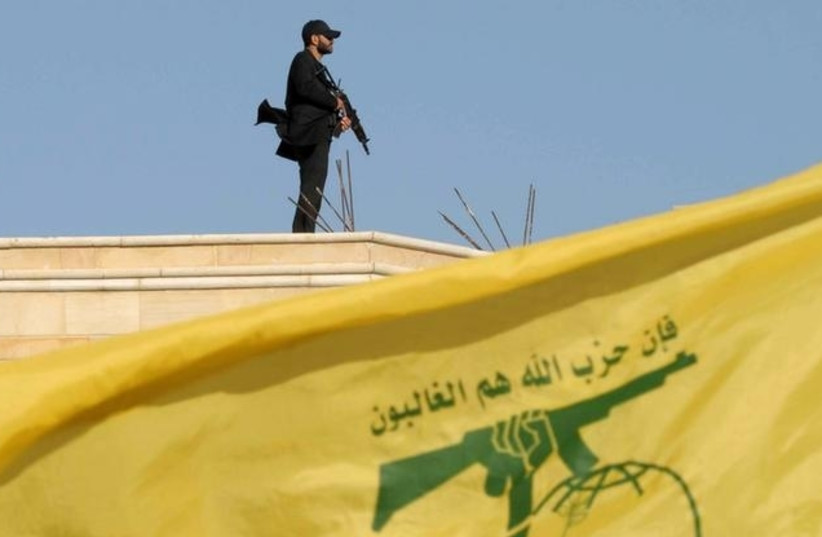Hezbollah claimed to target an Israeli army base at Biranit on May 1. The group put out a statement to the pro-Iran Al-Mayadeen media claiming that the “Islamic Resistance in Lebanon-Hezbollah announced that its fighters targeted, this Wednesday morning, a deployment of Israeli occupation soldiers in the vicinity of the ‘Branit’ barracks with rocket weapons and artillery shells.” Hezbollah last claimed to have targeted the site on April 17 and has also targeted it in January and in November 2023.
Sirens sounded in northern Israel at 8:11 a.m. on May 1 in the communities of Al-Kosh, Matat, Netua, Fassuta, and Hurfeish. It is relatively rare to have sirens in Hurfeish, a large Druze town in northern Israel. Israel has evacuated most of the communities along the border, but Druze and Arab citizens generally have not evacuated their villages and towns near the border. Hezbollah has targeted the Arab Bedouin community of Arab al-Aramshe in April, wounding 14 soldiers. Hezbollah often claims to target soldiers in its attacks. Last week, Hezbollah killed an Israeli civilian who was working in the Mount Dov area.
Terrorists in Lebanon also claimed to have attacked an area near Metulla on Tuesday, April 30. No sirens were heard in the area, but Al-Mayadeen media, parroting Hezbollah, claimed that the terrorist group targeting “buildings where occupation soldiers were stationed.” The IDF said that “over the last few hours, launches were identified crossing from Lebanon into the area of Metulla in northern Israel. As a result, damage was caused in the area. No injuries were reported. In response, the IDF struck the sources of fire.”
The IDF also said overnight that it had responded to the recent Hezbollah attacks over the last days. “Overnight, IAF fighter jets struck Hezbollah terror targets in the areas of Khiam and Kfarkela in southern Lebanon, including observation posts and terrorist infrastructure. In addition, the IDF struck Hezbollah terrorist infrastructure and a military structure in the area of Blida in southern Lebanon, as well as terrorist infrastructure and observation posts in the areas of Odaisseh and Meiss El Jabal,” the IDF said.

IDF strikes areas in Lebanon
Sirens also sounded last night near the coast in Rosh Hanikra and Shlomi. Prior to the sirens which sounded at around 10:13 p.m., the IDF had said that “throughout today, IAF fighter jets struck several Hezbollah military structures in which terrorists were operating in southern Lebanon. Furthermore, the IDF struck to remove threats in a number of additional areas in Lebanon.”
Pro-Iranian media said that Hezbollah had also targeted other “occupation sites along the Lebanese-Palestinian border.” The terrorist group said they tried to ambush an Israeli military vehicle near Ramot Naftali on the border. “When it arrived at the ambush point, it was targeted with guided-missile weapons, and it was hit directly, leading to its destruction and burning, including those inside it.” The group also said they targeted Israel with “artillery,” although it was unclear if this is a reference to rocket, mortar, or other types of fire. Hezbollah has a large arsenal of rockets. It also uses the heavy Burkan warhead in attacks and also has anti-tank missiles. It is not clear what kind of “artillery” the group possesses besides several types of mortars.
The Hezbollah claims – that it provides to pro-Iran media – often exaggerate its successes but also often refer to actual attacks and attempted attacks. The group systematically claims daily attacks that target Israeli forces. The group monitors Israel closely, including Israeli media and Israeli statements, and often references Israeli media reports and footage in its own reports, as it tries to glean if its attacks were successful or have caused a stir in Israel. In addition, the group often openly details how it attempts to “ambush” Israeli forces, or target Israeli forces that are in various areas along the border.
Hezbollah rarely speaks in general terms, it is very specific in how it describes its attacks along the border. As such, it also believes the attacks have a certain “equation” in which Hezbollah has impunity to strike in areas near the border. The group rarely carries out deeper attacks, except when claiming to respond to Israeli attacks. In general, it is Hezbollah that chooses to escalate, even though it then pretends that it is retaliating.
IDF spokesperson Avichay Adraee posted on X that "there is a huge gap between Hezbollah's statements and claims and the truth," posting a photo of a damaged agricultural truck in the wake of the Hezbollah claiming of hitting a "military" vehicle.
The Hezbollah claims, which it provides to pro-Iran media, often exaggerate its successes but also often refer to actual attacks and attempted attacks. The group systematically claims daily attacks that target Israeli forces. The group monitors Israel closely, including Israeli media and Israeli statements, and often references Israeli media reports and footage in its own reports as it tries to glean if its attacks were successful or have caused a stir in Israel.
In addition, the group often openly details how it attempts to “ambush” Israeli forces or target Israeli forces that are in various areas along the border. Hezbollah rarely speaks in general terms; it is very specific in how it describes its attacks along the border. As such, it also believes the attacks have a certain “equation” in which Hezbollah has impunity to strike in areas near the border. The group rarely carries out deeper attacks except when claiming to respond to Israeli attacks. In general, it is Hezbollah that chooses to escalate, even though it then pretends it is retaliating.
